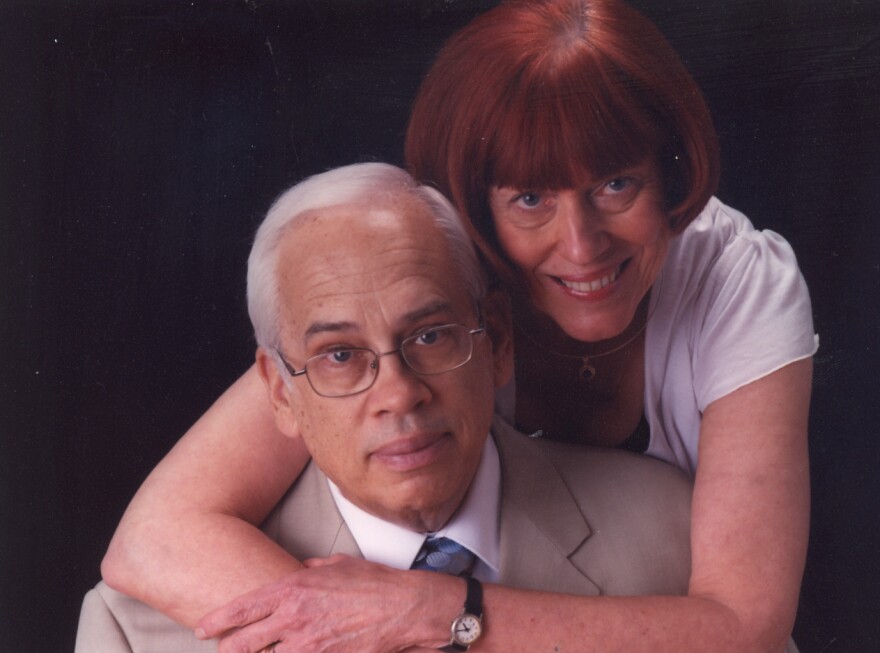Wayne King is an attorney from Clay County and one of five candidates running for a seat on the state’s Supreme Court of Appeals. King is known for being outspoken on many issues, but perhaps most for his opposition to public campaign financing.
Wayne King grew up in Belle, West Virginia, but has lived in Clay for the last 45 years. At age 71, he’s still working as a full-time attorney since graduating from West Virginia University College of Law in 1971. Now, he’s running for the West Virginia Supreme Court. King says he’s been contemplating a run for the last twelve years.
“I noted more of a sense of arrogance in the judiciary,” King said, “and I believe that, in discussing with my wife, I decided that I would try to tell my story being a down at home, commonsense, country lawyer and run for the Supreme Court.”
A first-time candidate who has only raised around $200 in donations, King says those things haven’t stopped him from trying.
“It’s better to try to do something and give it your best shot, then wake up five years from now and say, why didn’t I do it?”
King has been a prosecuting attorney and a family law master and has a practice currently focused on court appointed work, which he says gives him a wide range of experience.
“It gives me a chance to be in court and be on my feet all the time, and it’s a challenge to think and go head-to-head with the best lawyers in West Virginia and also to try to match wits with very intelligence and well-trained judges,” he said.
Much of King’s time is spent representing children in abuse or neglect cases. He says this work is important to him, because he’s an advocate for children and it’s an area his family is involved in on a personal level.
“There’s hundreds and thousands of kids in West Virginia that need stability in their home life,” King noted, “and course, my daughter was a foster parent out in California for some ten years, and actually fostered about fifteen children until she finally was able to adopt a young baby named Tabitha, that’s our granddaughter, and so just seeing the opportunity to help not only children, but also represent fathers and mothers in those cases certainly is challenging.”
King has often cited the fact that he’s received more ethics complaints than all his opponents combined. But King says that’s a strength – it means when it comes to defending his client or being a prosecutor, he won’t back off.
“I’m the lawyer you want to take into court with you, because I’ll give it my best shot,” he said, “Sometimes people don’t like that. I do have ethics complaints, I’m not afraid to hide ‘em. I was censored once and suspended once, but I think they were wrong.”
This year’s Supreme Court race for the first time is non-partisan. King says it’s not a bad idea but needs tweaking because the state could end up with a Justice who received less than 50 percent of the vote.
“That’s just not right,” King explained, “A justice to the Supreme Court should be elected by at least a majority of the people, and if no one gets the majority in the primary, the top two should run off. In addition, if we’re going to start public financing and non-partisan things, then possibly Supreme Court justices should only be able to serve one term.”
The candidate has also been outspoken on his stance against the public campaign financing system. Two of King’s opponents are running their campaign on public dollars.
“I just think it’s an embarrassment to ask the average citizens of West Virginia in these tough economic times to take on that burden,” he said, “I also have said that I would not, when elected, during the twelve years that I serve, turn in any vouchers for costs. I think that I can pay my own way as justice of the Supreme Court and not accept any reimbursement for any expenses I incur.”
King has loaned around $13,000 of his own money to his campaign. He says he thinks voters will favor him over the other candidates because he’s real.
“I feel that if people listen to me and meet me one-on-one, my friends tell people how I practice law and my background and how I treat people fairly,” King explained, “and easy to get along with outside the courtroom, not necessarily inside the courtroom, but just I feel that once those ideas and those thoughts go up and down the hollers here in West Virginia, the streets of the cities, and everything else that my name will be well-known, and I think I have a lot of friends anyway across the state of West Virginia, and we’ll just see what turns out.”
This year, West Virginia voters have only one chance to vote for a Supreme Court Justice and all other judicial officers and that’s during the state’s primary election. Early voting is underway and Primary Day is May 10.























